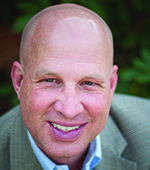By John Chandler
 One of the leaders in multi-scenario planning and global forecasting in recent decades has been the Shell Corporation. Their economic interest in doing this well is clear: with a predicted global population of nine billion and increased urbanization, Shell anticipates an 80 percent increase in energy consumption. They prefer to anticipate movements in policy, climate and technology to catch a profitable wave.
One of the leaders in multi-scenario planning and global forecasting in recent decades has been the Shell Corporation. Their economic interest in doing this well is clear: with a predicted global population of nine billion and increased urbanization, Shell anticipates an 80 percent increase in energy consumption. They prefer to anticipate movements in policy, climate and technology to catch a profitable wave.
What is Shell predicting that we need also to be watching? For starters, that seven of these nine billion people will be living in large cities. In particular, urban growth will come from thousands of smaller towns that will develop into cities. Since most of these will be in China, India, Nigeria and the United States, the development of new urban infrastructure will determine whether these emerging population centers will be places of squalor and disease or creative and vibrant communities. Much of this will hinge on financial investment, and so developments in innovative global financing will be critical.
Naturally, Shell is interested in these scenarios for reasons of policy and innovation around energy issues. But how might local Baptist congregations adjust to the reality that, sooner than later, three quarters of the globe will be urban rather than rural?
One of the first things we can begin to do (if we are not currently living in a city) is get used to the idea that we are and will be living in a crowded marketplace of ideas, ideologies and world views. Canadian Baptist Gary Nelson (in a magnificent book) calls it living in the “Borderlands.” This is no longer the Jerusalem world of Acts 2; it is the Athens world of Acts 17. In James Sire’s words, we live in “the universe next door.”
By 2050, it will be a rare discussion about the distinctions between Baptists and Methodists; the bigger questions will be about how Christian (and Baptist) worldviews compare and contrast with Islam or a mish-mash of “new spiritualities.” Already, Baptists are having to dig a layer deeper than asserting “the priesthood of every believer,” for instance. We will have to think in terms of what it means that any person has access to God because of the work of a man from Palestine two millennia past.
Can we raise the altitude of the plane from 3,000 feet to 30,000 feet? If we want to address and include the burgeoning urban landscape, we’d better.
